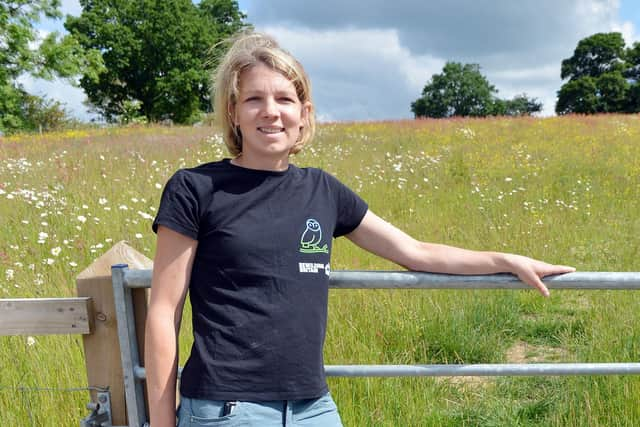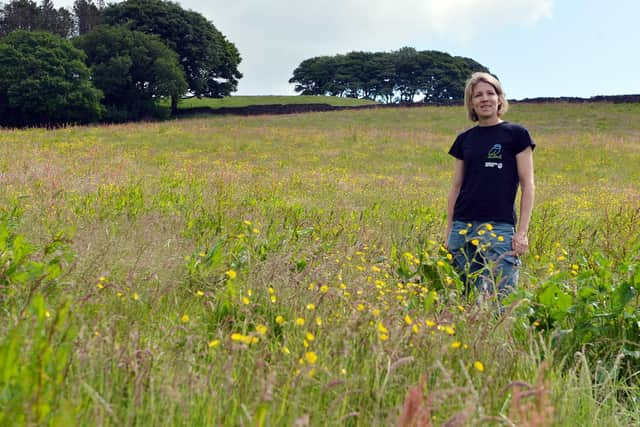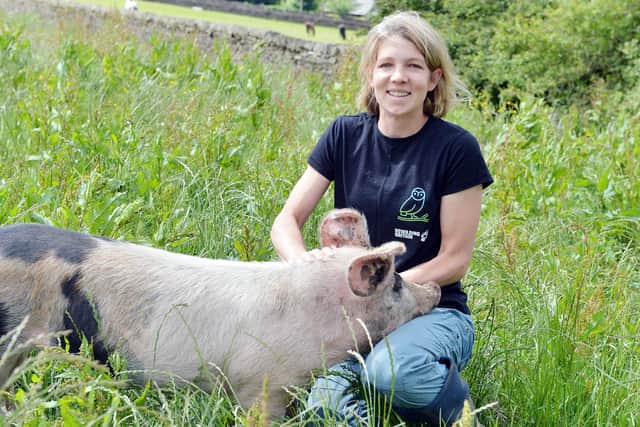Whaley Bridge farm gets back to nature with rewilding project
and live on Freeview channel 276
Rewilding is a new way of conservation by letting nature take care of itself.
Without human input through chopping things down and using pesticides the land is able to repair and flourish.
Advertisement
Advertisement
This creates more natural habitats for wildlife and promotes a stronger ecosystem for the area.


And for Rachel and Geoff Evatt, who own Sunart Farm just outside Whaley Bridge they have already spotted changes in the landscape since they bought the land 18 months ago.
Mum of two Rachel said: “Like a lot of people we are very concerned with the nature and climate crisis we are living through and decided we needed to do something.
"When most people think of farming they think of green fields full of grass and not much else but this uniformed and intense farming is not good for the land.


Advertisement
"Hedgerows are being ripped up to make way for more fields and the homes and habitats for birds and insects have been stripped away so we wanted to try and right some of these wrongs with own way of farming.
Advertisement
"Rewilding isn’t lazy and not doing anything - in fact we’ve been working harder than ever to give nature a chance to thrive.”
Since taking on Sunart the couple have planted more 9,000 hedgerow plants and tidied up public footpaths through the farm to encourage people only to walk on the paths and not elsewhere where flowers and plants are growing.
More wild flower seeds have been scattered and certain areas are being allowed to grow as nature intended.


Advertisement
Rachel said: “In just one year we have already seen so much change. I have seen more nesting birds, the return of red deer to the land and so many insects, bees and butterflies flying around – it’s been amazing.
"This has happened because now there is less human interference the trees and flowers are germinating better meaning there is more food for smaller animals which will attract them and in turn attract the larger birds of prey and we are creating a strong eco system."Rachel and Geoff do have livestock on the farm but are operating at smaller numbers with four pigs and between six to ten cattle at any one time.
Advertisement
“We want to create a sustainable food chain, one which can support the landscape.
"Our focus is on selling meat to restaurants rather than mass supermarkets, we are about quality not quantity.
Advertisement
"We are also working closely with florists in the area and supplying them with fresh British wild flowers which more people seem to be interested in at the moment rather than flowers with a huge carbon footprint that have travelled from overseas,” she says.
With Brexit and a change in people’s attitudes to intense farming already happening Rachel believes this type of farming is the way forward.
The 39-year-old said: “Traditional farming is largely supported by government subsidies based on how many animals you are holding on your farm not how many you are selling which encouraged people to keep a large number of livestock on their farms."
Advertisement
The government is changing its approach and is now supporting those who are prioritising environmental land management as well.
Advertisement
This means there is funding which includes grants for the Sustainable Farming Incentive, Local Nature Recovery and Landscape Recovery available to help Rachel and Geoff.
The couple have been on a learning journey since taking on the land, despite having a small holding before, but said this had been a dream for a while and when the right opportunity arose they had to take the chance.
"We have opened our doors to the community and we want to share our way of farming with others,” said Rachel.
"We can’t fix the global climate crisis on our on but we can all do a little bit and change where we live.
Advertisement
Advertisement
"We have welcomed brownies and guides to the farm and had residents help plant out the hedgerows so if those people go away and scatter a few wild seeds in their gardens or don’t mow the grass as often to allow smaller habitats to thrive then we are passing on our knowledge and making a difference.”
The farm has a stand at the RHS Flower Show Tatton Park next month and will be showing a weed border in all its beauty.
"Some people hate weeds but dandelions especially are a bee’s main food source in the spring,” said Rachel.
"We know there has been a wider appeal for wild flowers recently which is great but they are no different than weeds, they just have better PR!
Advertisement
"So we will be displaying everything people would normally dismiss and showing all flowers and plants have a place in people’s gardens.”
Advertisement
The couple’s two children are heavily involved with the running of the farm and Rachel added: “This is a life long commitment to farm differently, to let nature be at the forefront of what we do and although we are starting to see changes as rewilding takes its hold there is still so much more to do.
"This is a gift not just to our children but to the next generation to start looking after the land again.”